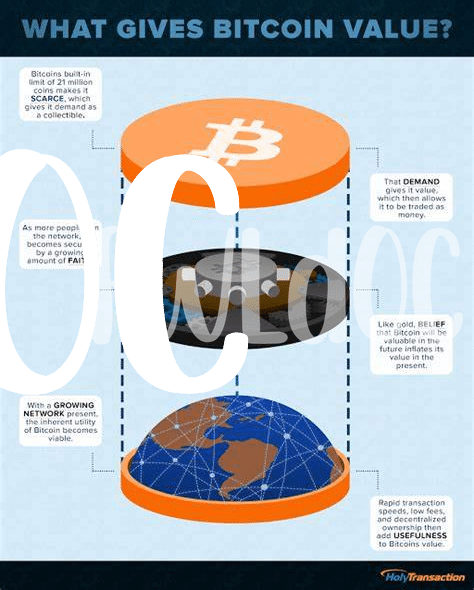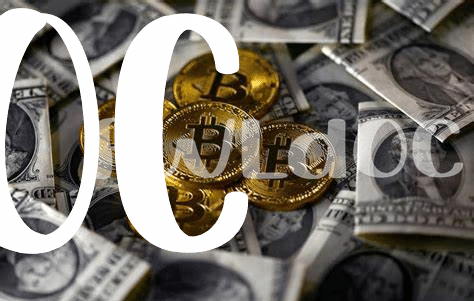🌍 How World Events Shake Bitcoin’s Price Boat

Imagine the world as a vast ocean and Bitcoin as a ship sailing on it. Now, when big news hits – like a country’s election results, a major company accepting or dropping Bitcoin, or even rumors of new regulations – it’s like a storm brewing. These storms can make Bitcoin’s price soar like a skilled sailor catching the wind or drop like a ship caught in a whirlpool. It’s fascinating, really, how closely Bitcoin’s journey mirrors our world’s events, with each wave reflecting our hopes, fears, and ambitions on a global scale. And in this shared ocean, every news drop creates ripples that touch shores far and wide, affecting Bitcoin’s path in ways that are as unpredictable as they are intriguing.
| Event Type | Typical Bitcoin Price Reaction |
|---|---|
| Political unrest | 🚀 Increase |
| New regulations | 📉 Decrease |
| Economic turmoil | 🚀 Increase |
| Stable political/economic news | 🛳️ Steady |
📉 the Ripple of Economic Policies on Bitcoin
When governments around the world tweak their economic dials—adjusting interest rates, printing more money, or even setting rules about how money can cross borders—these changes create ripples that reach far and wide, sometimes crashing onto the shores of digital currencies like Bitcoin. Imagine a big, global pond. Every time a country makes a major economic move, it’s like dropping a stone into this pond. The ripples spread, affecting everything in their path. For Bitcoin, these ripples can mean a sudden jump or drop in value. Why? Because Bitcoin is global, and its value isn’t tied to just one economy or currency. So, if one country’s economy is shaky, people might buy more Bitcoin, seeing it as a safer place to put their money. On the other hand, if another country introduces tough new rules for digital currencies, it might make people nervous about holding Bitcoin, leading to a drop in its value. It’s a bit like watching a thrilling game, where the rules change as the game goes on. To understand more about how Bitcoin can be a safety net in these turbulent economic times, consider reading more about its security features and how they’re being constantly improved to protect users’ investments at https://wikicrypto.news/exploring-multi-signature-wallets-your-bitcoin-safety-net.
🏦 Central Banks: Friends or Foes of Bitcoin?

Imagine a world where the big banks, the ones that hold the keys to countries’ money, start eyeing up Bitcoin, the digital gold that dances to the beat of its own drum. It’s a bit like the classic tale of the new kid on the block meeting the established schoolyard monitors. These banks can make moves that might help Bitcoin shine or put it in a tough spot. For instance, when they decide to make it easier for people to buy Bitcoin, its value could soar like a rocket. But if they frown upon it, introducing rules that make it harder to get or use, Bitcoin’s price might take a dive.
Now, think of a seesaw in a playground. On one side, you’ve got these central banks, and on the other, Bitcoin. Every decision made by the banks can send Bitcoin’s value up into the sky or crashing down to the ground. Some folks believe these banks could be great pals to Bitcoin, helping it become more accepted and used by everyone. Yet, others worry they might not get along, leading to a bumpy ride for Bitcoin. It’s a fascinating dance between the old guard of money and this digital newcomer, showing us that when it comes to the world of money, change is always right around the corner. 🏦👀🚀
🤝 International Trade Agreements’ Impact on Bitcoin

When countries shake hands over trade, it’s not just goods that cross borders more freely—it can also send ripples through the world of Bitcoin. Imagine two countries deciding to make it easier to buy and sell things from each other. Sounds straightforward, right? But this simplicity on the surface hides a complex web of effects underneath, especially for Bitcoin. As businesses thrive and economies grow thanks to these deals, more people might find themselves with extra cash looking for a place to grow. For some, this place is Bitcoin. It’s like a new wave of players joining a game, pushing the demand, and sometimes, the price of Bitcoin, up. However, it’s essential to consider how every coin has two sides. Changes in trade policies could also introduce uncertainties. How? Well, think about when was bitcoin created security concerns. If a new trade agreement makes bitcoin trading easier in one place but harder in another, it could lead to a shake-up in where and how people invest in Bitcoin. Big picture: international trade agreements can be a boon or bane for Bitcoin, influencing its value in ways that aren’t always straightforward at first glance.
🛡️ Political Conflicts and Their Bitcoin Price Tag
When countries lock horns, it’s not just the news channels buzzing; the shockwaves reach far and wide, even into the digital world of Bitcoin. Imagine two countries having a spat, like a disagreement over trade or a tense political standoff. This uncertainty makes many investors nervous, and in their search for a safe place to park their money, they often turn to Bitcoin. This increased demand can push Bitcoin’s price up, showing how even distant political disagreements can sway its value.
Interestingly, Bitcoin’s reaction to political conflicts isn’t always predictable. Sometimes, instead of climbing, its value might dip. This happens because some investors see the turmoil and decide it’s safer to convert their digital treasure back into traditional money.
| Type of Conflict | Initial Bitcoin Response | Long-term Bitcoin Trend |
|——————–|—————————–|—————————–|
| **Trade Disputes** | Increase in value | Varies |
| **Military Tensions** | Sudden spike in demand | Generally increases |
| **Economic Sanctions** | Rise in demand | Steady increase |
Through these fluctuations, Bitcoin showcases its dual nature as both a beacon for those seeking refuge from the storm and a vessel navigating the choppy waters of global politics.
🚀 Bitcoin: the Safe Haven in Political Storms?

When the world gets shaky, politically speaking, some people start looking for a safe place to keep their money. Think of it like a storm coming: you’d want to secure your boat in a safe harbor. That’s how some view Bitcoin when political storms brew. They see it as a haven, a place where their money can sit out the wild weather of global politics without sinking. Whether it’s a big election, a government shake-up, or even international tensions, these events can make traditional money values dance like leaves in the wind. But Bitcoin, with its digital footing outside the usual money systems, often stays more stable in these times, attracting more folks to anchor their assets there.
However, not everyone agrees that Bitcoin is a safe harbor. Its value can soar and dip quite dramatically, reminding us that while it may be set apart from traditional money, it’s not immune to storms. For those considering this digital haven, understanding the ins and outs of Bitcoin, especially how to protect and manage it, is crucial. Wondering why do bitcoin prices fluctuate investment strategies can offer insights into navigating these waters wisely. Knowing when to sail in — or out — of Bitcoin’s harbor can make all the difference in weathering political and economic storms.
